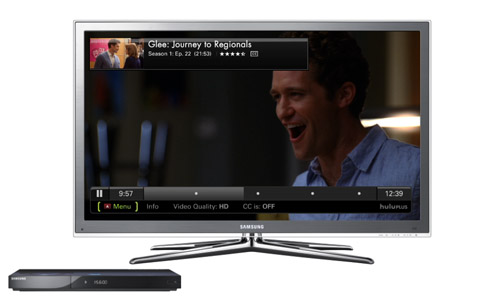Grey Areas: Accessing Hulu for free in the age of Hulu Plus

Just two months ago, Hulu launched its premium subscription service Hulu Plus which brings streaming TV content from its popular website to mobile devices and connected TVs and set-top boxes.
Now that a special for-pay version of Hulu exists for all these devices, the services that brought Hulu's free Web content to these same devices could be squeezed out of the "placeshifting" margin where they existed before.
Media management software Boxee, for example, used to pull Hulu's free content from the Web, but then it was blocked in early 2009, reportedly based upon the demands of their content partners. Boxee, now more popular than it's ever been only has access to Hulu through Hulu Plus, which forces Boxee users to pay for the content they used to get for free.
Washington DC lobbyists Public Knowledge have tried to make federal legislators aware of the situation, so they can make effective decisions about the proposed joint venture between NBC Universal (Hulu's co-parent company) and cable company Comcast, who is itself a distributor and content partner for Hulu.
At the end of December, the Federal Communications Commission determined the partnership to be mostly acceptable, but said that developments in streaming online video have had a major impact on the proceedings. For the joint venture to begin, approval from the Department of Justice needs to be earned too.
PlayOn, the "placeshifting" software that lets users watch Web video from a number of sites --including Hulu-- on their video game consoles and mobile devices, witnesses the powerful influence of Hulu's parent companies on an almost daily basis, and recently appeared before lawmakers in Washington.
"Hulu has taken to coercing device manufacturers to not work with us," PlayOn CEO Jeff Lawrence told Betanews recently. "Whether it's a company that's already worked with us who they've convinced to terminate contract, or a company they've heard we're about to work with that they convince to not …We've seen it across the board. Fortunately, policymakers are now pretty aware of it."
PlayOn has engaged with Washington about the health of its business, and to inform legislators about how existent policies are protecting it from the potentially crushing influence of companies like NBC Universal, Fox, and ABC.
"They don't want to see traditional companies --whether it's traditional technology companies or traditional media companies-- stifle smaller companies that are innovating just because it might be disruptive to their traditional business," Lawrence said.
The goal of Washington's intervention wasn't to make PlayOn's business better, but rather to help create an environment where competition is fair and innovation is encouraged.
There's a catch though. The fair use of placeshifting has still never been proven in a court of law, and all of the competitors in the now-mature placeshifting business, SlingBox, Orb, MythTV, and Monsoon Multimedia, utilize different, and sometimes ever-changing methods of access and control to keep from running into copyright infringement issues.
"We always end up going back to the Betamax case (Universal City Studios Inc et al v. Sony Corporation of America Inc. et al,)" Lawrence said. "The Movie industry was dead set against VCRs, took it all the way to the Supreme Court, and ultimately the court said it's fair use. Timeshifting was unambiguously declared as a very legal thing, placeshifting is popularly believed to be the exact same thing, it's another fair use case, whether you're shifting the time, or shifting the place, it doesn't change the answer."
So far, PlayOn has managed to stay out of court and stay in business. He says PlayOn is essentially the same as running a long VGA cable from your home's computer into your living room, so there's no reason for the company to be viewed as anything but legal.
What remains to be seen is whether the government's involvement in the placeshifting space is going to keep Hulu from muscling out the companies that shift its free Web content to different devices.
"Things like the [Federal Trade Commission], and the [antitrust division] in the Department of Justice; we really do need them on our side," Lawrence said. "Because creative, intelligent people who have financial interests can absolutely use the system in a destructive way that destroys value for consumers, that destroys value for small businesses, but maintains the status quo. So making sure the system isn't abused is of the utmost importance."
